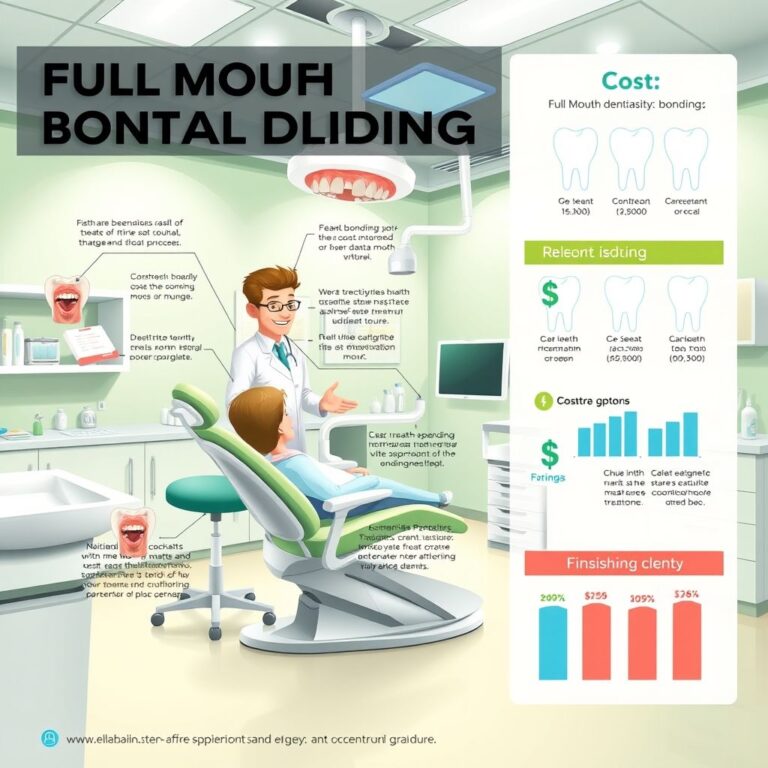Comprehensive Guide to Composite Bonding Prices in Ireland
Composite bonding has become a popular cosmetic dental procedure in Ireland, offering an effective solution for enhancing smiles without the need for invasive treatments. This comprehensive guide aims to delve into the various aspects of composite bonding, particularly focusing on its costs in Ireland. Through thorough research, we will explore what composite bonding entails, the factors influencing its price, the benefits and drawbacks, and provide useful insights for those considering this dental procedure. This article will be detailed and extensive, ensuring that readers gain a thorough understanding of composite bonding in Ireland.

What is Composite Bonding?
Composite bonding is a cosmetic dental procedure that involves applying a tooth-colored resin material to the surface of the teeth. This material is sculpted and shaped to correct various dental imperfections, such as gaps, chips, discoloration, and minor misalignments. The procedure is minimally invasive and typically requires just one visit to the dentist.
Benefits of Composite Bonding
- Aesthetic Improvement: Composite bonding enhances the appearance of teeth, providing a natural-looking smile.
- Quick Procedure: Unlike other dental treatments, composite bonding can often be completed in a single visit.
- Non-Invasive: This procedure preserves most of the natural tooth structure.
- Cost-Effective: Generally, composite bonding is less expensive than other cosmetic dental procedures such as veneers or crowns.
Drawbacks of Composite Bonding
- Durability: Composite bonding is not as durable as other materials like porcelain. It may need to be replaced or repaired over time.
- Staining: The resin material used can stain over time, particularly if exposed to substances like coffee, tea, or tobacco.
- Maintenance: Regular dental check-ups and good oral hygiene are essential to maintain the appearance and longevity of bonded teeth.
Factors Influencing Composite Bonding Prices in Ireland
The cost of composite bonding in Ireland can vary significantly based on several factors:
Geographic Location
- Urban vs. Rural: Dental practices in urban areas like Dublin or Cork tend to have higher prices compared to rural areas due to higher operating costs.
- Regional Differences: Prices can also vary between different regions within Ireland.
Dentist’s Expertise
- Experience: Dentists with extensive experience and specialization in cosmetic dentistry may charge higher fees.
- Reputation: Well-known dental clinics with high demand can afford to set higher prices for their services.
Complexity of the Procedure
- Number of Teeth: The cost will increase with the number of teeth being treated.
- Severity of Dental Issues: More complex cases requiring extensive shaping or multiple layers of bonding material will cost more.
Materials Used
- Quality of Resin: Higher quality composite resins that offer better durability and aesthetics can increase the cost.
- Additional Treatments: Sometimes, additional treatments like teeth whitening or gum contouring may be recommended, adding to the overall cost.
Average Costs of Composite Bonding in Ireland
The cost of composite bonding in Ireland can range widely. Here is a table summarizing the average costs based on the factors discussed:
| Factor | Average Cost (EUR) |
|---|---|
| Single Tooth Bonding | €100 – €350 |
| Multiple Teeth Bonding | €800 – €3,000 |
| Complex Cases | €1,500 – €4,500 |
| High-Quality Resin Materials | Additional €50 – €150 per tooth |
| Urban vs. Rural (Price Range) | Urban: €200 – €350, Rural: €100 – €250 |
Detailed Cost Breakdown
Single Tooth Bonding
For a single tooth, the cost can vary from €100 to €350. This variation is due to factors like the dentist’s expertise, the quality of materials used, and the complexity of the bonding required.
Multiple Teeth Bonding
When bonding multiple teeth, the costs can escalate from €800 to €3,000. The total cost depends on the number of teeth, the extent of cosmetic correction needed, and any additional treatments involved.
Complex Cases
In more complex cases where extensive reshaping or multiple layers of bonding material are needed, the costs can rise significantly, ranging from €1,500 to €4,500.
High-Quality Resin Materials
Using high-quality composite resins can add an extra €50 to €150 per tooth. These materials provide better aesthetics and durability but come at a higher price.
Geographic Variations
- Urban Areas: In cities like Dublin and Cork, prices range from €200 to €350 per tooth due to higher operational costs.
- Rural Areas: In more rural settings, the prices are lower, ranging from €100 to €250 per tooth.
Case Studies and Examples
Case Study 1: Single Tooth Repair in Dublin
A patient in Dublin required bonding for a chipped front tooth. The procedure involved using high-quality resin material for a natural look. The total cost was €300, considering the expertise of the dentist and the urban location of the clinic.
Case Study 2: Multiple Teeth Enhancement in Cork
In Cork, a patient wanted to enhance the appearance of four front teeth. The dentist recommended composite bonding along with a preliminary teeth whitening treatment. The overall cost amounted to €2,800, including the high-quality resin and additional whitening procedure.
Case Study 3: Complex Bonding in Rural Galway
A patient from rural Galway needed extensive composite bonding to correct gaps and minor misalignments in eight teeth. The dentist used standard resin materials, and the total cost was €2,500, reflecting the lower prices in rural areas.
Tips for Reducing Composite Bonding Costs
- Consult Multiple Dentists: Get quotes from several dental practices to compare prices and services.
- Check Insurance Coverage: Some dental insurance plans may cover part of the cost of composite bonding.
- Consider Dental Schools: Dental schools often offer reduced rates for procedures performed by supervised students.
- Maintain Oral Hygiene: Good oral hygiene can prolong the life of composite bonding, reducing the need for frequent repairs or replacements.
FAQs
What is the lifespan of composite bonding?
Composite bonding typically lasts between 5 to 7 years, depending on factors like oral hygiene, diet, and the quality of materials used.
Is composite bonding painful?
The procedure is generally painless and may not even require anesthesia. However, some patients might experience slight sensitivity afterwards.
Can composite bonding be reversed?
Yes, composite bonding can be removed or replaced if necessary. However, this should only be done by a qualified dentist.
How do I care for my bonded teeth?
Maintain good oral hygiene by brushing twice a day, flossing daily, and visiting your dentist regularly. Avoid biting hard objects and minimize consumption of staining substances like coffee and tobacco.
Does composite bonding look natural?
When done correctly, composite bonding looks very natural. Dentists use resin that matches the color of your natural teeth, making the bonding virtually indistinguishable.
Conclusion
Composite bonding is a versatile and effective cosmetic dental procedure that offers numerous benefits, including improved aesthetics and quick results. However, the cost can vary based on several factors such as location, dentist’s expertise, and the complexity of the procedure. By understanding these factors and exploring cost-saving options, patients in Ireland can make informed decisions about their dental care. With proper maintenance, composite bonding can provide a long-lasting solution for enhancing your smile.
Additional Resources
- Irish Dental Association – Website
- Health Service Executive (HSE) Ireland – Website
- Dental Council of Ireland – Website
- European Federation of Periodontology – Website
Note: The information provided in this article is based on extensive research from various sources to offer a detailed understanding of composite bonding prices in Ireland. However, actual costs and experiences may vary. Always consult with a professional dentist for personalized advice and treatment plans.


